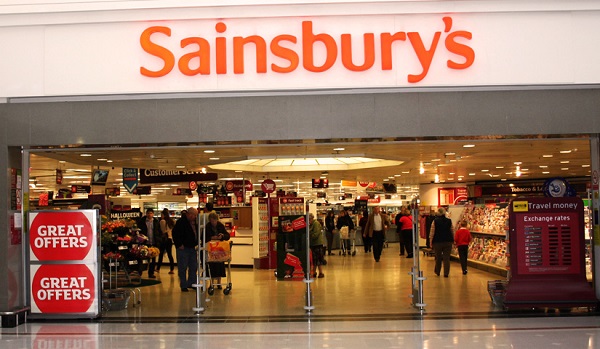Swapping expensive bills for slightly smelly food waste, one UK supermarket chain has now found a smart solution to paying for power.
Pay your electricity bills folks; you never know when your lights are going to go out or your TV’s going to turn itself up right at the cliffhanger of a gripping Game of Thrones episode if you don’t. Dreadful stuff. Alternatively, if you’ve got a bio-engine just sitting around and also about 3 tonnes of gone off, stinky and completely inedible food laying around you could just take a mouldy leaf out of UK retailer Sainsbury’s book by using all of that food waste to power your electricity and heat your home. That’s what they’ve now done at one branch in Cannock, West Midlands, upon realising that it’s far cheaper (and makes a lot more sense, if you think about it) for them to utilise their leftovers instead of forking out both to dispose of it and not get anything back and to pay for electricity too.
The Sainsbury’s branch in question happens to be just down the road from Biffa, a food waste specialist company, which is why this plan is so darn clever. Biffa will use microbes to turn Sainsbury’s honking food into bio-methane after which that gas is then shuttled back to the store using a 1.5km long cable. The plan is set to be so successful that not only are they going to make good use of that Biffa bio-fuel but the supermarket is also going to go completely off of The National Grid meaning that it won’t receive any electricity from the UK’s nationwide power source whatsoever.
Sainsbury’s says that it will allow them to “close the loop on food recycling” but questions remain about what will happen to the rest of the food that isn’t turned into the eco-friendly power stuff. Well, proving that they are perhaps the philanthropists (and resourceful merchants) that we’d all like to be, any food that doesn’t get sent to Biffa (and that presumably isn’t past its use-by date) will be given to charities and food banks, which is in line with what they do already. They currently make enough food stuff waste at the store for it to power 2,500 homes a year and there are likely other branches that make even more so could this be rolled out across the country? Could it even bring British supermarket prices down? We’ll keep you posted once we know more.
Source: Sainsbury’s
Be social! Follow Walyou on Facebook and Twitter, and read more related stories,Amazon Prime Price Increase Being “Considered” by Retailer, UK Supermarket Chain Tesco to Use Face Scans to Target Ads











